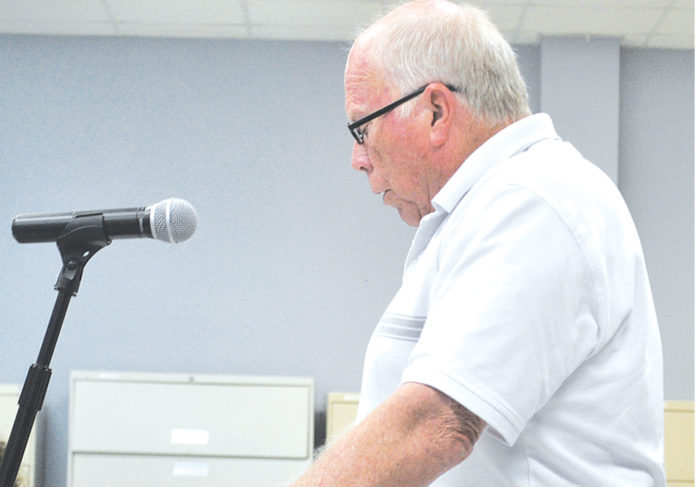
By Mindy Ragan Wood
Staff Writer
Road woes for Piedmont residents continue to be a sore spot but there is light at the end of the tunnel on at least two streets.
Crews will begin a rehab of 192nd and 234th as early as July 10. Construction on Sara Road between 164th and 178th will move forward after the city council voted to approve the lowest project bid to Chamber Excavation for $219,000. The project will be a double chip and seal.
The stretch of Sara Road is heavily travelled by Piedmont residents and the road base “is gone,” Councilman John Brown said.
“This road was originally built in 1998 when some of those additions went in there and before that it was a dirt road. It’s been re-chipped and sealed three times since then. It’s bad because we have not done the base work,” he said. “We did a portion of this road when we redid the bridge and the surrounding approaches to the bridge when they sunk. When they did the road in ‘98, that was a low water crossing and it was pretty bad. When they filled it in, they didn’t compact it and so things sank around it. So, we redid those sections around the bridge.”
Brown said he gets at least one call a week regarding the condition of the road. Councilman Al Gleichmann said he gets a call every day from unhappy residents, but he balked at the price.
“I mean, $219,000 for that one mile is just going to be a chip road. That should be down there at $150,000 to $175,000 instead of $200,000,” he said.
Brown agreed but said no one bid in that price range and he did not want to delay the project. The council approved the project 4-1 with Gleichmann’s no vote.
During the meeting, residential traffic was not the only concern. Terry Brennan complained that the increased oil and gas truck traffic has worsened the troubled streets in the four weeks since a well site was installed near his home on Traditions Drive. He presented photographs of the damage to the council.
“About four weeks ago our neighborhood became a victim of an oil drilling operation,” he began. “These folks have no appreciation for those who live in close proximity to the site of 234th about midway between Sara and Mustang Road. They’ve caused damage to 234th and have at various times partially and fully blocked the road and the early stages had the road littered with large mud clods so that they could have caused serious damage to a car. In addition to the constant den of mechanical noise, the ultra-bright night lights shine in the windows of houses, mine included. I realize they need lights for safety but there are lights that put light on the ground and not broadcast it like you live in the land of the midnight sun. I’m asking the council to do what is possible to stop these practices of blocking the road and polluting the night sky.”
Brennan suggested those who cause the damage should be required to repair it.
“In my opinion the City of Piedmont needs to recover damages caused to the road after the operations are concluded so the road could be repaired without the use of city funds. Also, the drilling company needs to be responsible for repairing and patching the road during the drilling operations since they’re tearing it up. Safety of the traveling public is at stake. We the taxpayers in the city of Piedmont deserve nothing less,” he said.
Canadian County Commissioner Marc Hader said he worked with lawmakers on a bill in the last legislative session to solve that problem.
“With all the noise at the Capitol it didn’t make it through, but it is something that could have helped. The legislature has taken so much money from the county roads and bridges fund, $230 million. That money was set aside for extraordinary projects that normally wouldn’t get done. There’s a bridge on Waterloo (Road) that’s been pushed back because of this. The legislature said it wouldn’t affect projects. Well it did and it has,” Hader said.
The increase in oil and gas production has bumped up the gross production tax revenue, a major source of infrastructure funding for counties. Hader was reluctant to predict the increase would be significant or consistent.
“When they collect that (gross production tax) it’s dispensed by a percentage across the state. It doesn’t come back in to an equal proportion where the drilling is done,” he said.
As quickly as the tax comes in, the oil and gas companies are shredding through the roads in their path.
“We are grateful to get it, to help offset the harm but it’s hard to say we’d be able to get ahead of it,” Hader said.





